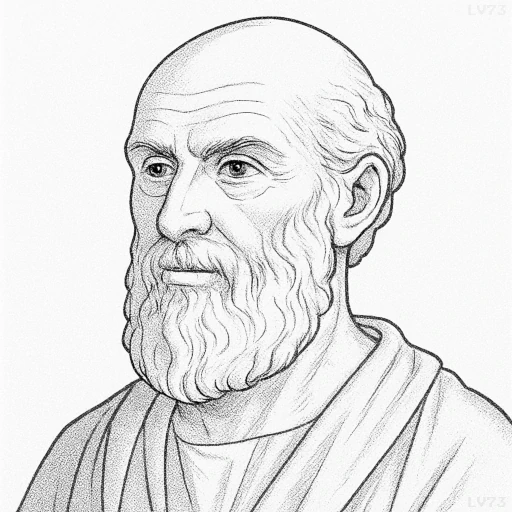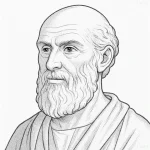“To do nothing is also a good remedy.”

- c. 460 BC – c. 370 BC
- Greek
- Physician, “Father of Medicine”
table of contents
Quote
“To do nothing is also a good remedy.”
Explanation
This quote, while often attributed to Hippocrates, does not appear in any verifiable form within the Hippocratic Corpus. However, its meaning aligns with the conservative approach in ancient medicine, especially within Hippocratic thought, which often emphasized observation, patience, and the body’s natural healing processes. Thus, although the attribution is uncertain, the philosophy behind the statement reflects Hippocratic ideals.
The idea suggests that in some situations, intervention may cause more harm than good, and that the best course of action is restraint. In Hippocratic practice, physicians were encouraged to “do no harm” (primum non nocere), and sometimes this meant trusting the body to heal on its own, particularly when treatments were risky or poorly understood. In this way, doing nothing was not neglect, but a deliberate and informed choice.
In modern medicine, this principle continues to apply in contexts such as watchful waiting in low-risk cancers, minimal intervention during childbirth, or avoiding over-prescription of antibiotics. It reminds practitioners and patients alike that not every condition requires aggressive treatment, and that sometimes patience, monitoring, and trust in the body’s resilience can be the most effective remedy.
Would you like to share your impressions or related stories about this quote in the comments section?
